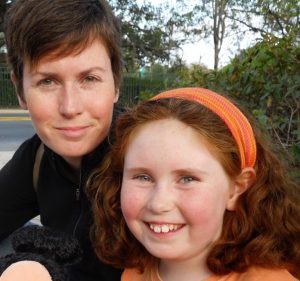 Parenting with Epilepsy
Parenting with Epilepsy
In this month’s column I’d like to talk about parents living with Epilepsy. Children need answers. If epilepsy or another health problem affects you as a parent, it is best to give the facts and let your child ask questions. Epilepsy is like any other condition; it affects everyone. It is often found that your relationship will be strengthened when you communicate with each other.
One of my biggest tips is to tell the truth. Explain the severity of your Epilepsy, explain what type you have, and how it may affect you.
Kid-Friendly Language
Be sure to use language and explanations that are appropriate for children’s ages. My brother was 7 when I began having seizures, I remember him being so confused before we got answers. I was so upset that I had to explain to him that I had an incurable condition because, at the time, I didn’t understand it myself. I didn’t know how it was going to affect my life and those around me. Mum told him all about it at the time.
When you explain to your child, try not to use complex medical terms that are hard for kids to understand; even now when I use terms like Status epilepticus or aura, ictus, and postictal states people look at me in a confused manner. You know your children best. Just speak to them in the same terms you would use to talk about other things.
Be Curious
Encourage your children to ask questions, no matter how old they are. If you are confused about anything yourself, try getting a brochure on Epilepsy terms, facts and statistics so you and your family always have something to look at for answers. You can often find resources like these in the hospital (Neurology department). If your child asks something that you cannot answer, say that you will find the information as soon as you can. Then follow through. You may find the answer on Living Well with Epilepsy, or you may need to talk to the doctor or nurse.
The most important message for any child is that people with epilepsy are just like everyone else. They deserve respect and understanding.
Be Prepared
If you feel your child is old enough to learn what to do during a seizure you could teach them the following rules:
- stay with you, so they don’t get lost
- get help from someone else, for example a neighbour or friend
- help you themselves, if they know what to do. (try to teach them basic first aid)
Some people wear medical jewelry or carry an ID card saying what to do if they have a seizure. Even if children are too young to manage seizures, they may be able to tell other people that you have a card or medical jewelry. I always wear an ID wrist band, you can find these online or from a local store in your area.
Caring for Your Child
If you are worried about caring for your child whilst you are getting your Epilepsy controlled, speak with your doctor on what you could do to make you and your family feel safe. If you have any close friends or family members, don’t be afraid to seek their advice and help. One of the biggest concerns for parents is how to look after a small child when you have seizures. Some tips I have found when people have asked me for advice on caring for an infant are:
- Try your best to give your child a bath when there is somebody else with you. This is because, if you had a seizure, the infant would be at risk. If you are alone, try to wash your child with water from a shallow bowl.
- When changing or dressing your child, it is safer to do this on the floor rather than on a changing table or a bed. If you had a seizure your child is safer being at a lower height rather than being at risk of falling from a height.
Remember it is always OK to ask for some help. This doesn’t make you any less of a parent than those who do not have epilepsy.
“Without the dark, we’d never see the stars.”









Leave a Reply